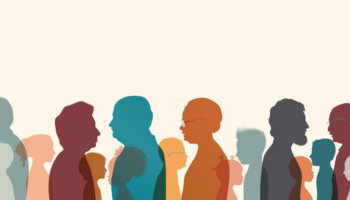
Caregiving, a role that cuts across cultural boundaries, is both a universal experience and a deeply personal journey as it is filled with love, sacrifice, and resilience. While the role varies across cultures, it unites caregivers in a shared experience. This piece is particularly for caregivers, especially women from diverse backgrounds, who often feel isolated within expected roles. Despite the differences in cultural practices, caregivers around the world share common threads which bind them together.
How We Care Is Rooted In Culture
In Asian cultures, the expectation of maintaining privacy about family health issues can lead to a sense of isolation for caregivers. Despite being a cultural norm, deeply rooted in respect and dignity among family, caregivers often bear the emotional and physical burden quietly without seeking external support. While noble, this approach can be incredibly taxing, as caregivers navigate the complexities of their loved one's health issues in solitude.
In many African households, caregiving responsibilities often fall on the first daughter, creating a sense of duty that may overshadow personal aspirations. This cultural practice, steeped in tradition, places a significant responsibility on the first daughters’ shoulders, often from a very young age. Physical caregiving as well as emotional and financial support responsibilities make it a multifaceted and challenging experience.
In Latino cultures, the deep-rooted value of familial loyalty often makes caregiving a central part of life based on views of caregiving as a natural extension of family responsibilities, with every member playing a role. Recognized as a communal approach, caregiving is shared among family members, creating a support network that benefits both the caregiver and the recipient.
Despite nuances, the essence of caregiving – the joys, the challenges, the sacrifices – is a shared human experience. Caregivers, irrespective of their background, often find themselves stretched thin, balancing caregiving with personal life, and dealing with the emotional toll of caring for a loved one. The constant juggling act between roles can be exhausting, often leaving caregivers with little time for self-care or personal pursuits.
Recognizing culture may influence but does not define the caregiving journey is crucial. Caregivers are individuals with their own needs and aspirations. Seeking help is a practical step towards effectively managing caregiving responsibilities and does not diminish the love and care provided. Alternatively, it’s a sign of strength and recognition that caregiving is a demanding role that requires support.
Find the Right Support For You
Practical strategies for caregiving vary. Asian communities emphasize creating a family support system, where responsibilities are shared. This approach not only distributes the caregiving load but also fosters a sense of community and mutual support. African households commonly hire assistants to help manage caregiving duties. Pragmatic solutions allow caregivers to balance responsibilities more effectively, ensuring loved ones receive the care they need while also attending to their own well-being.
Latino cultures often adopt a communal approach, involving extended family and friends in caregiving. A shared responsibility model can alleviate the pressure on a single caregiver, fostering a supportive environment for both the caregiver and the recipient, and is a testament to the power of community and the strength that comes from collective support.
Leveraging technology such as health monitoring apps and online support groups is proving beneficial for Western cultures. These tools offer convenience and a sense of connection, allowing caregivers to manage their responsibilities more efficiently and find support from others who understand their experiences.
Social media platforms and online support groups have made it easier for caregivers to connect, share experiences, and learn from each other, which broadens perspectives and understanding. Through these interactions, caregivers can discover new coping strategies, gain emotional support, and feel less isolated. The exchange of stories and advice across digital platforms underscores the universal nature of caregiving, which is bridging cultural gaps and fostering a global community of support and solidarity.
Learn From Others to Ease the Burden
The key takeaway for all caregivers is the importance of sharing your caregiving load and learning from others’ experiences. Whether through family support systems, hiring external help, embracing community caregiving, or utilizing technology, these strategies can significantly ease the caregiving burden.
Realizing our differing experiences provide lessons we can apply is vital. The nuances of how we care for our loved ones may differ, but our commitment to care weaves us all together as one large community. Understanding brings a sense of unity and support, essential in the caregiving journey. While strategies and approaches may vary across cultures, the underlying connection is a shared journey of caregiving. By embracing diverse strategies and recognizing common threads among our experiences, caregivers can navigate their roles with greater ease and support.
We Are Diverse, But We Are Not Alone
Caregiving is a universal experience — unique, yet unified in its essence. Strategies and approaches may vary across cultures, but the underlying connection is a shared journey. By acknowledging diverse practices, caregivers can find new ways to manage their responsibilities, connect with others, and recognize they are not alone in this journey. Realization fosters a community of caregivers, bound together by their commitment to care, transcending cultural differences and highlighting the universal nature of caregiving.
Ogo Ekwueme is a visionary leader in public and community health transformation. As the Founder and CEO of Health LeadHER, Ogo leads an organization dedicated to empowering diverse and multicultural women and business owners. Health LeadHER provides strategic education, guidance, and essential technological tools to enhance health and wellbeing outcomes in communities. Ogo has also established the Annual Diaspora Multicultural Women in Health Global Business Conference, where over 200 multicultural leaders gather annually to address community health and impact. Her passion for healthcare and community reform is deeply personal. The struggles of Ogo’s family with devastating illnesses and her own near-death experience during childbirth have fueled her determination to alleviate suffering and improve health and social disparities for multicultural communities.
See this feature inside the Caregiven app.
Look for it on the Home tab within the Caregiven application.

